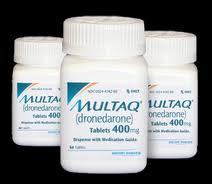As a Vaginal Mesh Defective Product Lawsuits attorney, and Texas Medical doctor I am providing this important update.

According to a safety communication issued by the Food and Drug Administration, Women who have vaginal surgery to fix a gynecologic condition called pelvic organ prolapse may wind up with more problems than benefits if a plastic mesh is used.
The FDA said it plans to convene an advisory committee to determine whether to ban the mesh – manufactured by Mass-based Boston Scientific Corp., Covidien PLC of Mansfield, and several other companies – for this procedure.
About 100,000 women with pelvic organ prolapse are treated with plastic mesh each year, but in most cases, according to the FDA, the condition can be treated successfully without mesh.
Mesh-related problems reported to the FDA include painful sexual intercourse, infections, urinary problems, and bleeding, usually from the mesh eroding through the stitched tissue or from skin contracting tightly around it.
Boston Scientific, is one of several companies that already face lawsuits over the mesh. Dozens of women who said they endured painful complications after the company’s mesh was implanted filed complaints last year in a California court, and many of the cases are now being transferred to jurisdictions across the country where the plaintiffs live.
Covidien, a company incorporated in Ireland with its corporate headquarters in Mansfield, supplies mesh to Bard, which markets it to health care providers to treat pelvic organ prolapse.
According to attorneys who represent more than 100 women in a complaint against Bard lodged in federal court in West Virginia, said the manufacturers initially designed the mesh for hernia repair. While regulators gave companies clearance to market it for pelvic organ prolapse repair, they did not look to see if, mechanically or otherwise, these products worked in the pelvis. “They should have known that they needed to check and test.’’
In 2008, the FDA announced that problems could be associated with transvaginal placement of the mesh, which is used along with surgical stitches to support sagging pelvic organs such as the bladder, uterus, and bowel after they have been lifted back out of the vagina, where they descended. From 2008 to 2010, the FDA received 1,503 adverse event reports associated with mesh used for pelvic organ prolapse repair, five times as many as the agency received from 2005 to 2007. It also received three reports of deaths that were related to the mesh placement procedure.
Recent studies indicate that about 10 percent of women who have the mesh placed transvaginally experience mesh erosion within 12 months of surgery and that more than half require additional surgeries to remove the mesh. Sometimes, the mesh becomes so intertwined with scar tissue that it cannot be removed. Furthermore, the FDA found that the mesh does not make the surgery any more effective.
According to Dr. William Maisel, the FDA’s deputy director of the Center for Devices and Radiological Health, “The evidence we reviewed calls into question the clinical benefit of mesh, and it certainly shouldn’t be used routinely for all transvaginal prolapsed repairs.”
In 2010, 75,000 women had vaginal surgery with mesh to repair pelvic organ prolapse. That surgery was performed three times as often as abdominal surgical mesh repair, according to the FDA, since it does not require a painful incision through the skin and offers a less painful recuperation for women.
The FDA cited studies showing abdominal mesh repair for pelvic organ prolapse led to vaginal erosion in 4 percent of women within 23 months of surgery. The FDA urged patients with the condition to ask their surgeon about all treatment options, including those without mesh, before having the operation.
The reassessment of surgical mesh comes as FDA reviews its fast-track system for clearing medical devices, which has been largely unchanged since the 1970s. Like 90 percent of medical devices sold in the U.S., pelvic mesh was cleared under the FDA’s fast-track system, which grants market approval in 90 days to devices that are considered low-risk.
Medical device manufacturers have spent the last year lobbying the FDA and Congress to speed up device approvals as the government reviews the process. Safety advocates say the agency has been overusing the system and clearing high-risk devices that should be subject to more testing.
According to Dr. Diana Zuckerman, the agency should have required the studies it is now contemplating before mesh products were approved. “If they had been required to go through the more rigorous approval process, similar to that for prescription drugs, it would have been obvious years ago that surgical mesh has more risks than benefits in many types of surgery,” said Zuckerman, who directs the National Research Center for Women & Families.
The FDA will hold a meeting in September to discuss studies that would identify which patients benefit most from mesh implants. The FDA will ask panelists at the meeting whether pelvic surgical mesh should be reclassified as a high-risk device.
Surgeons began using mesh to repair hernias in the 1950s, and over the next 40 years they adapted the technique for women’s health conditions. FDA cleared the first mesh for prolapse in 2002, but since it was similar to devices that had been used for decades it did not have to undergo human testing.
The mesh was approved through the FDA’s 510(k) process, which calls for companies to prove that a product is “substantially equivalent” to one already on the market — usually without clinical studies on patients. The approval process is currently being scrutinized by the Institute of Medicine on behalf of the FDA.
Among the manufacturers are Boston Scientific Corp., American Medical Systems Inc. (now part of Pennsylvania-based Endo Pharmaceuticals) and Coloplast. Other companies making the mesh include Cook Medical, Covidien PLC, C.R. Bard Inc., and Ethicon, a division of Johnson & Johnson.
Continue reading

 Dallas Fort Worth Injury Lawyer Blog
Dallas Fort Worth Injury Lawyer Blog









